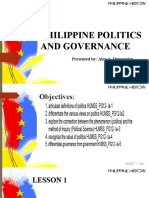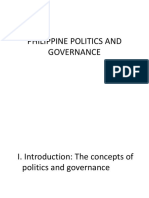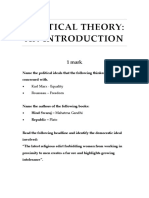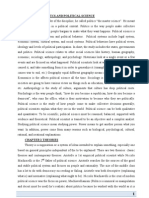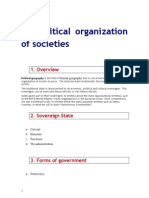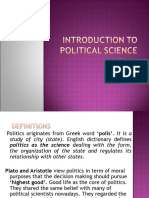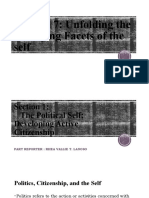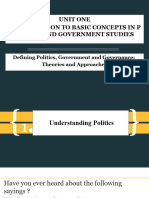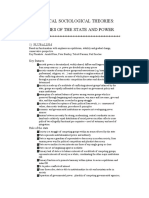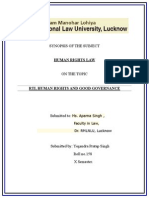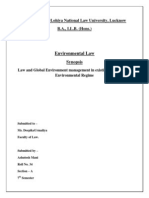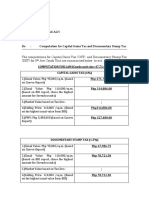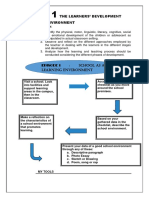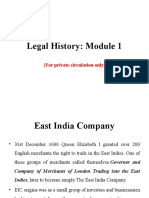What is Politics-?
Politics refers to the relationship between government and society
What is Political Science-?
Political Science is concerned with a systematic study of ‘politics’ in human societies. Integration and
Conflict are two sides of coin
“Politics.”
What is State-?
State is a social organisation with a fixed territory and stability in society living within that territory. State is distinguished from other forms of social organisation in terms of sovereign power exercised by it. Here Sovereignty is defined as undisputed legal authority over a territory.
In ancient India, the Saptanga Theory of State elaborated in Kautilya’s Arthshastra mentions seven
elements
—
Swami, Amatya, Janpada, Durga, Kosa, Danda and Mitra. In the west, writers like Harold J. Laski and J.W. Garner have referred to four elements of state as follows- 1.
Population
2.
Territory
3.
Government
4.
Sovereignty [Central theme]
What is Government-?
The state has to exercise sovereign power over the territory and the people within its jurisdiction. For doing this it needs an organisation with persons exercising power on its behalf. Government is such an organisation of the state, with defined powers and functions for the different organs [Legislature, Executive and Judiciary] of the governments. Government of a State can be democratic or non-democratic, unitary or federal and Presidential or Parliamentary.
What about Indian State-?
The origin of State in India is as old as Vedas, when Dharma was the cardinal principle of Politics in India.
Manusmiriti
is the earliest text to elaborate the principles of social life, propounds decentralization and welfare activities as the basis of the state organisation. Gradually ancient state has evolved into modern state. John Locke propounded the Doctrine of Consent and John Stuart Mill gave much importance to representative and responsible government.
Nation-
The concept of Nation refers to sense of belongings from a particular State or Region. A society claims distinction on the basis of some common characteristics of its people. Some characteristics that form the basis of such a claim are: lineage, culture, language, religion, territory, race, and so on. The idea of

nation and the process of nationalism emphasize the sense of solidarity, and resemblances on various grounds. A sense of belonging among the people is provided by these factors either singly or in combination turned out as a Nation.
Nation Building-
This is the process of consolidation of various social groups [whole population] under a common tag. It is one of the main objectives of the sate to maximize the level of integration in society which is known as Nation Building.
Political System-
The political system of a state refers to the sum total of ideology or principles on which government of a State has been organised to discharge its duties or functions towards Citizens and to exercise the sovereign power of State. The political system of modern states are organised on the basis of constitution of a particular state.
Classification of Government-
Government of a modern state can be classified into various forms like democratic or autocratic, unitary or federal and parliamentary or presidential etc. This classification of government usually based upon the following factors- S. No. Basis/Factors Type of Government 1. Nature of exercise of power Democratic or Autocratic 2. Nature of executive agency Parliamentary or Presidential 3. Territorial distribution of power Federal or Unitary 4. Nature of constitution Hard or Soft
Political Culture-
Political Culture of a country refers to a set of beliefs and attitudes prevailed in a particular political society.
Political Socialization-
The process by which a particular set of attitudes, belief and orientations is passed on from one
generation to another is known as political socialization. It is study of “what, when and how people learn about politics”. Inter
-generational continuity is the essence of political culture. The willingness of people to accept new ideas and beliefs is a matter of learnt behaviour. Thus, the learning process to acquire existing political culture is known as political socialization. Individuals acquire certain social obligations through ordinary course of interactions. Process of political socializations is not necessarily a conscious process. Various factors such as international developments, domestic transformations,
historical events, and social stirrings shape the process of political socialization. There is a direct linkage between political culture and political socialization. Political socialization is the process by which political cultures are formed, maintained and changed. Thus, it is important to study the process of political socialization in order to understand political stability and development of political system. An individual acquires a particular belief, value and attitude towards politics of a state through manifest and latent transmission of information. The teaching of civics syllabus in the schools is an example of manifest political socialization. Latent political socialization process implies transmission of non-political attitudes towards prevalent institutions in a political system. It involves the fundamental aspects of culture in a political system. Political socialization takes place through a variety of institutions and situations. These are family, peer groups, educational institutions, secondary groups/such as work place, the mass media, government and political party machineries.
Who makes Government in a State i.e. Political Parties-
Political Party refers to a political or social institution with a common ideology. Party system in a state varies from state to state as one party system, two party system and multi party system
Political Participation-
The study of political participation implies the study of actual involvement of people in the decision-making process rather than popular attitude of becoming involved. It refers to the involvement of mango peoples in policy making, implementing and its evaluation. In contemporary context effective participation of citizens in decision-making process has been emphasized through decentralization of power. Effective political participation is also achieved through the various emerging concepts like
pressure groups, interest groups, civil society and NGO’s.
Political Development-
Political Development refers to gradual changes occurred into the political structure and political culture of a state during a certain time period. Political development is related to increasing governmental efficiency in the use of human and material resources of the nation for the common good. It also highlighted the notion of national political capacity or efficiency. Political development it refers to the capacity building of the government in discharging its duties or responsibilities. The concept of political capacity referred only to two basic areas of development: ability of a government to collect revenues from its subjects to implement its preferred policies and its ability to mobilize human resources.
Cardinal Theories of Politics-
Liberalism-
An ideology based on a commitment to individualism, consent and toleration: modern liberalism differs from classical liberalism. According to this ideology economic system is based upon
Laissez-faire
approach and it advocated
*capitalism.
Ideology also advocated the concept of free market and liberalization. Almost all developed countries on globe supported this ideology *A type of economic system which precedes socialism or communism. It is based on private ownership of the means of production and on the exploitation of the wage labour.
Socialism-
A political ideology based on the principle of state ownership of resources and industry along with responsibility of socio-economic development. Socialism is a clear contrast to Laissez faire and advocated more interference from government side. Traditional Socialism is different from **
democratic socialism.
**Democratic Socialism
refers to a mixed ideology
aiming at bringing about socialism through democratic means. The ideology was consciously articulated by Nehru and endorsed by the Indian Parliament from time to time.
Marxism-
This ideology was advocated and founded by Karl Marx. Marxism is based upon the principle of classless society. Lenin of former USSR and Mayo of China were the main supporter of this ideology. Marx advocated replacement of capitalism by communism.
Fascism-
Fascism refers to a political ideology which advocates an authoritarian hierarchical government (as opposed to democracy or liberalism). NAZI party of Germany under leadership of Adolf Hitler and
Italy’s Mussolini were the prime advocator of this ideology
Gandhism-
One more political or economic ideology put forward by Mahatma Gandhi of India is known as Gandhism. This ideology is based upon the principle of non-violence and decentralization of power to local government
Few important terms in Polity-
Bourgeoisie-
This is a French term signifying citizen class or working class. The term is frequently used by Marxist socialists to denote the class of proprietors, capitalists, manufacturers, merchants, persons with a business of their own and members of liberal profes
sions as opposed to the ‘proletariat’ who live only
by selling their labour.
Proletariat-







